 Boilers are definitely one of the best kinds of heating systems out there, but we sometimes find that people stick with forced-air systems simply because they’ve never tried a boiler. It makes sense, because these forced-air systems are cheaper to install, and they get the job done pretty well. However, boilers in Delaware do have plenty of benefits to them that aren’t apparent. In this post, we’ll go over the basics of all things boilers.
Boilers are definitely one of the best kinds of heating systems out there, but we sometimes find that people stick with forced-air systems simply because they’ve never tried a boiler. It makes sense, because these forced-air systems are cheaper to install, and they get the job done pretty well. However, boilers in Delaware do have plenty of benefits to them that aren’t apparent. In this post, we’ll go over the basics of all things boilers.
Atlantic Refrigeration and Air Conditioning, Inc. Blog: Archive for the ‘Heating’ Category
All About Boilers
Monday, October 15th, 2018Fall is Around the Corner: Time for a Furnace Check-Up
Monday, September 17th, 2018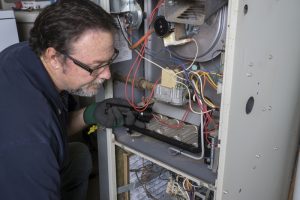 According to the calendar, fall will be arriving soon. Whether or not this is actually the case is an entirely different matter; summer seems to be working on its own schedule in the last few years. Regardless, about now is the perfect time to have your furnace looked at.
According to the calendar, fall will be arriving soon. Whether or not this is actually the case is an entirely different matter; summer seems to be working on its own schedule in the last few years. Regardless, about now is the perfect time to have your furnace looked at.
Why now? For one, any problems with your furnace can be fixed at your own leisure. You won’t have to be stuck in the cold waiting for an HVAC repair crew (who will be busy doing repairs for others). Second, if there are any serious issues, you’ll have plenty of time to budget or set aside money for the costs.
As for the other benefits, they include:
3 Home Efficiency Upgrades for the Coming Cold Season
Monday, September 3rd, 2018 It’s only August, but that doesn’t mean we can’t be a little early to get you thinking about the cold season. After all, some stores are already putting out Halloween supplies!
It’s only August, but that doesn’t mean we can’t be a little early to get you thinking about the cold season. After all, some stores are already putting out Halloween supplies!
We want to give you plenty of time to think about three different kinds of upgrades or modifications you could make to your existing HVAC and plumbing system. Under the right conditions, they could be perfect for saving you big through the fall and winter.
Heating Systems Benefit from HVAC Servicing
Monday, April 2nd, 2018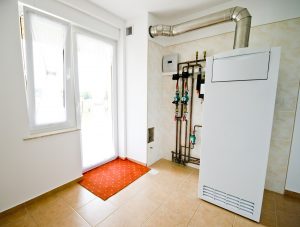 We’re approaching the end of heating season and temperatures will be rising steadily throughout the next few months. That means you’re going ot be using your heating system less and less, and air conditioners more and more until your heater hardly sees any use at all until next autumn.
We’re approaching the end of heating season and temperatures will be rising steadily throughout the next few months. That means you’re going ot be using your heating system less and less, and air conditioners more and more until your heater hardly sees any use at all until next autumn.
That makes now the perfect time for a technician to give your heating system a look and check for any problems. You’d be surprised how many benefits a servicing session can provide.
HVAC Contractor Services Need to Install your System Right
Monday, February 5th, 2018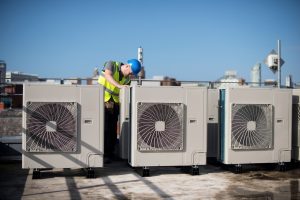 If you’re looking to install a new HVAC system in your home or business, the smart move is to contract a dedicated HVAC contractor service to perform the operation the right way. Countless problems with heating and cooling systems – both residential and commercial – can be prevented simply by ensuring that the right team installs your system the right way. We’re in the throes of winter right now and big projects like HVAC installation will likely need to wait until spring. But now is the time to start planning such installations, and with a strong contractor service in your corner, you can make sure your new system works exactly as intended.
If you’re looking to install a new HVAC system in your home or business, the smart move is to contract a dedicated HVAC contractor service to perform the operation the right way. Countless problems with heating and cooling systems – both residential and commercial – can be prevented simply by ensuring that the right team installs your system the right way. We’re in the throes of winter right now and big projects like HVAC installation will likely need to wait until spring. But now is the time to start planning such installations, and with a strong contractor service in your corner, you can make sure your new system works exactly as intended.
How to Respond to a Sudden Heating Problem
Monday, January 22nd, 2018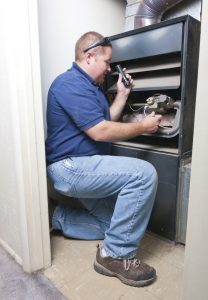 The East Coast is enduring one of the coldest winters on record and homeowners need their heating systems to function as needed on a daily basis. To do otherwise risks more than you comfort: it can present a health hazard too. Ideally, your system will get through the winter without a sudden heating problem, but if trouble does show up, you need to know how best to respond to it.
The East Coast is enduring one of the coldest winters on record and homeowners need their heating systems to function as needed on a daily basis. To do otherwise risks more than you comfort: it can present a health hazard too. Ideally, your system will get through the winter without a sudden heating problem, but if trouble does show up, you need to know how best to respond to it.
Why Won’t My Heating System Turn On?
Monday, January 8th, 2018 We’ve just come through a patch of bad weather, signs of a long winter to come. Meteorologists are predicting one of the coldest on record, which means you need your heating system to run every day without fail in order to keep your home warm and comfortable. There are many subtle signs that you can spot when something is wrong, and at least one not-so-subtle one either. When you turn your heater on and nothing happens, or it suddenly shuts down in the middle of running, you can be fairly certain that there’s a big problem. Performing some basic troubleshooting, followed by a call to a repair technician, is usually the best course of action.
We’ve just come through a patch of bad weather, signs of a long winter to come. Meteorologists are predicting one of the coldest on record, which means you need your heating system to run every day without fail in order to keep your home warm and comfortable. There are many subtle signs that you can spot when something is wrong, and at least one not-so-subtle one either. When you turn your heater on and nothing happens, or it suddenly shuts down in the middle of running, you can be fairly certain that there’s a big problem. Performing some basic troubleshooting, followed by a call to a repair technician, is usually the best course of action.
Beware of Cracked Heat Exchangers in Your System
Monday, December 25th, 2017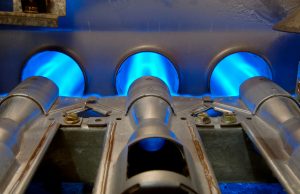 Winter is the time when our heating systems are put under more strained than ever, and when problems arise, they tend to do so just when cold weather hits and you need your system to function the most. It pays to keep a lookout for signs of trouble with your heating system, and call in a repair service the moment you spot one.
Winter is the time when our heating systems are put under more strained than ever, and when problems arise, they tend to do so just when cold weather hits and you need your system to function the most. It pays to keep a lookout for signs of trouble with your heating system, and call in a repair service the moment you spot one.
What Causes Low Air Flow in Your Heating System?
Monday, December 11th, 2017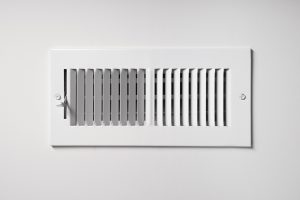 Forced-air furnaces are a common type of heating system in Delaware and Maryland: generating heated air either through gas-fed burners or electrically powered coils, then blowing the heated air through the same ducts used by the air conditioning system. It’s simple, effective and inexpensive, which is why such heating systems remain so popular. But it can also give you a quick and easy way to spot one of the most common signs of trouble in your heater: low air flow.
Forced-air furnaces are a common type of heating system in Delaware and Maryland: generating heated air either through gas-fed burners or electrically powered coils, then blowing the heated air through the same ducts used by the air conditioning system. It’s simple, effective and inexpensive, which is why such heating systems remain so popular. But it can also give you a quick and easy way to spot one of the most common signs of trouble in your heater: low air flow.
Leaky Ducts Can Cost You a Great Deal
Monday, February 6th, 2017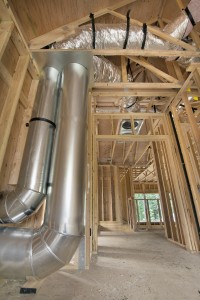 If you have a forced-air furnace in your home, you’re probably aware of the ducts used to transport the heated air from the furnace itself into the various rooms in your home. (The same ducts are used to convey cool air from your air conditioner in the summer.) They’re usually kept safe behind your walls, in your attic, or tucked away in similar spots. But problems can develop sometimes: leaks can spring up when bolts and seals break down, and in the worst cases, and actual breach can develop. That can be devastating during our cold winters here in Dover, DE, and leaky ducts need to be dealt with as quickly as possible when you spot them.
If you have a forced-air furnace in your home, you’re probably aware of the ducts used to transport the heated air from the furnace itself into the various rooms in your home. (The same ducts are used to convey cool air from your air conditioner in the summer.) They’re usually kept safe behind your walls, in your attic, or tucked away in similar spots. But problems can develop sometimes: leaks can spring up when bolts and seals break down, and in the worst cases, and actual breach can develop. That can be devastating during our cold winters here in Dover, DE, and leaky ducts need to be dealt with as quickly as possible when you spot them.
